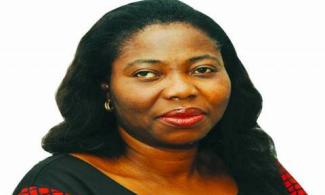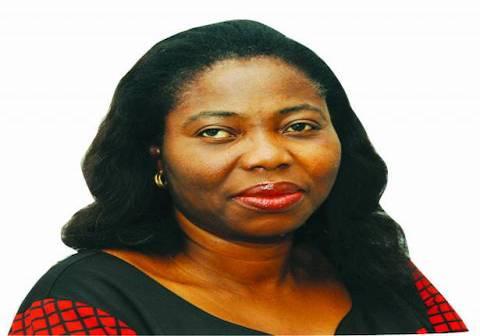
Sadly, UI has been enmeshed in some sorts of self-inflicted crises since the tenure of its former VC ended on November 30 last year, thus stalling the process of appointing a substantive VC.
Again, Nigeria’s 72-year-old University of Ibadan was ranked among the top universities in the world by the Times Higher Education World University Ranking 2021. This time around, the premier university advanced from its previous position of one of the top 600 to the 401-500 range. What this means is that UI is in the same league with institutions like Aston University, Bournemouth University, both in the UK, University of Connecticut, US, Durban University of Technology, South Africa, Georgia State University, University of Florida, Iowa State University-all in the US, King Saud University, Saudi Arabia and Tongii University China to mention just a few. Not only that, UI ranks far higher than the University of Bradford, for instance, which many Nigerians patronise for university education.

Agreed, getting to the top 100 might still be a long journey for Nigeria’s premier university, no doubt, it has consistently climbed the ladder of progress. It was for example the only Nigerian university on the Times ranking table in 2016. Then it was listed among the 801best varsities in the world. Fast forward to 2020, it jumped to the 501-600 Table. Its former and immediate past vice chancellor, Prof. Idowu Olayinka couldn’t hide his excitement, describing the feat then as the institution’s best showing since THE World University Rankings started in 2004. Again, UI’s ranking this year has proved to be a great improvement on its 2020’s outing. For now, UI is Nigeria’s poster boy in terms of global competitiveness.
Really, UI has a lot to boast about. Aside being the nation’s oldest university, its Postgraduate College is the flagship of Postgraduate Education in Nigeria, producing an average of 3,500 Masters and 400 PhD degree holders every year. Besides, of all the Nigerian universities on the Times Higher Education ranking table, it is the only university with reasonable number of foreign students. Not only that, it currently hosts the Pan African University Life & Earth Sciences Institute (including Health and Agriculture) on behalf of the West African Sub-region.
Sadly, UI has been enmeshed in some sorts of self-inflicted crises since the tenure of its former VC ended on November 30 last year, thus stalling the process of appointing a substantive VC. Prof. Adebola Ekanola, who was the Deputy VC (Academics), has been VC in acting capacity since December 1 last year. The university Governing Council had adjourned its sitting till February 8 to continue with the process of selecting a substantive VC but this meeting has been postponed indefinitely by the minister of education, Adamu Adamu. His decision was hinged on a plethora of petitions against the selection process. Before then, the minister had suspended the process two times within four months. It has since come to light that the real reasons behind the suspension of the selection process are the different agendas being pushed by different forces within and outside the university system. A former Vice Chancellor of the university, Prof Isaac Adewole, who was once a health minister, is said to be among the forces at play. He is said to have a preferred candidate for the position and using his connection to Abuja to achieve his aim. There is also an attempt to foster a Muslim agenda. The arrowhead of this is said to be the Executive Secretary of the National Universities Commission, Prof Rasheed Abubakar, who incidentally was once a VC. The immediate past VC of the university also has a preferred candidate but draws his own strength from the university community. Similarly, members of the Central Council of Ibadan Indigenes (CCII) are alleging marginalisation of Ibadan indigenes and believe the minister is working against the emergence of an Ibadan indigene as a VC. In fact, the report out there suggests that the process is being deliberately delayed by the minister of education till after the end of the tenure of the current Pro- Chancellor and council chairman, Mr Joshua Waklek, and some council members on May 9. According to another report, the minister is trying to bid time for the tenure of some of the university representatives to lapse before dissolving the council in May. This is plausible. Already, the tenure of one of the members representing the university community has expired. The tenure elapsed on Friday March 12, 2021 and it is unlikely the slot will be filled before the dissolution of the university council. The game plan according to multiple sources is to bring in six new representatives of the government to the council with a mandate to vote for a particular candidate and keep the depleted number of the university community as it is in order to achieve a pre-planned aim.
All these game plans are aberrations that call for serious concern especially now that many look up to UI to salvage the image of Nigeria’s battered higher education. In developed democracies, processes for selecting university leaders have long been settled and become entrenched. Unfortunately, here, political, religious and all kinds of considerations are rated above competence. Yet neither religion nor ethnic background is listed as qualifications for selecting a VC for UI. In fact in advertising for this position, the criteria listed by the university council are: a scholar of the rank of Professor, with a minimum of ten years experience; a demonstration of the ability to provide academic and administrative leadership; a person of proven integrity who must not be more than 65 years old as at the date of possible assumption of duty on 01 December, 2020; someone that will command the respect of the national and international academic communities; strengthen the bridges between staff, students and other members of the University community; a person with a clear vision for the development of the University; that enjoys excellent physical and mental health; and attract the much-needed funds into the University.
As a matter of fact, government has no business being involved in the selection process of VCs in Nigerian federal universities going by law. Selection should be the responsibility of the Joint Council and Senate Selection Board consisting of – (a) the Pro-Chancellor, as chairman; (b) two members of the Council, not being members of Senate; (c) two members of the Senate who are Professors, but who were not members of the Search Team. These are expected to short- list and recommend to the Council three candidates for further consideration. The Council then selects and appoints one candidate from among the three recommended and informs the Visitor, who is the President. These are the provisions of the Universities (Miscellaneous Provisions) Act No. 11, 1993 as amended by The Universities (Miscellaneous Provisions)(Amendment) Act No. 55 of 1993; The Universities (Miscellaneous Provisions)(Amendment) Act No. 25 of 1996; The Universities (Miscellaneous Provisions)(Amendment) Act 2003, otherwise called The Universities Autonomy Act No. 1, 2007 and The Universities (Miscellaneous Provisions) (Amendment) Act 2012. In other words, the process for the appointment of a vice chancellor in Nigerian public universities should be the statutory responsibility of the Governing Council of each university. Once appointment is made, it should be legally binding and effective without any input from the President. The law only requires the Council to inform the President of the appointment. The President is not even empowered to approve or disapprove. The law does not even make any reference to the Minister of Education at all in the selection process. The law is very clear but like many other things in Nigeria, our leaders choose what to obey and disobey.
As it is, the education minister needs to prove to the world that he is neither harbouring any special interest nor working for anybody in this whole exercise. Claiming to halt a process because of petitions and suspending council meeting indefinitely because the process is compromised does not add up at all. This is not the first time that people are writing petitions during VC selection processes. The same thing happened in 2010 in UI. When a new VC designate emerged, there were all manners of petitions, but the then Chairman of Council, Chief Wole Olanipekun (SAN) dealt with the issues appropriately. Some ‘Concerned Professors,’ even called for the annulment of the entire process a day before the new VC was to resume office. The same thing happened during the appointment of the immediate past VC in 2015. Some people went to court to stop him from assuming office but he did eventually. Petitions shouldn’t be basis for suspending a process. We should be more concerned about adherence to due process. An indefinite suspension of the council sitting gives the impression that the education minister is a major player in this ongoing brouhaha. That is why the Governing Council should be allowed to do its job. There will always be losers and winners in every game of life. The most important thing is allowing the right person to fill the position. All these surreptitious moves by people that think they have influence in government should be curbed.
It will be sad if politicians are allowed to destroy the only heritage that we are holding on to in terms of higher education especially in Nigeria’s public institutions. On one hand, we talk of autonomy in our universities and on another; we allow the processes to be unduly hijacked by politicians. The education minister has a responsibility to stop the politicisation of the UI VC selection process to prove his innocence. People will continue to write petitions once they know they can have their way through them.
Olabisi Deji-Folutile is the Editor-in-Chief, Franktalknow.com and member, Nigerian Guild of Editors. Email: [email protected]